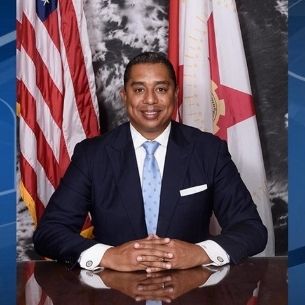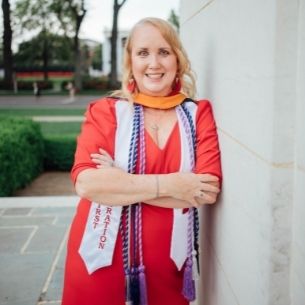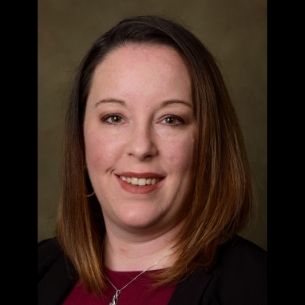MASTER OF SCIENCE (MS) IN
Consumer Sciences, concentration in Family Financial Planning and Counseling
Online
Program Overview
An online master’s degree in Consumer Sciences can prepare you for a rewarding career as a financial counselor or advisor. Graduates holding this degree from The University of Alabama can assist families as they focus on asset management, planning, investing and financial decision-making.
-
Program Format
Online -
Credit Hours
30 -
Tuition Per Hour
$440
Build a Career as a Financial Planner
In this concentration, students will study economic and social influences on the family and learn how to help individuals and families achieve their financial goals. By taking two courses each semester, students may complete this MS degree in less than two years.
Those who earn their degree in the Financial Planning and Counseling concentration from UA develop a more holistic approach to financial planning that focuses on the client’s financial and non-financial goals when creating a long-term financial plan.
By studying online through UA, you will become part of the Crimson Tide family as you learn from the same experienced professionals who teach on campus. Many of the professors who teach in this program have not only studied financial planning, but they have also worked in a financial role for major corporations. You will be able to learn from and network with some of the best minds in the industry.
Students who successfully complete the concentration may sit for the CFP Certification Examination that leads to the CERTIFIED FINANCIAL PLANNER™ certification.
The degree fulfills the educational requirement to sit for the Accredited Financial Counselor® exam, which is offered through the Association for Financial Counseling and Planning Education®.
The Family Financial Planning and Counseling Concentration coursework fulfills the educational requirements to sit for the CFP® certification exam that leads to the CERTIFIED FINANCIAL PLANNER™ certification registered with the Certified Financial Planner Board of Standards, Inc. The Certified Financial Planner Board of Standards Inc. owns the marks CFP®, Certified Financial Planner™ and CFP (with flame logo) ®, which it awards to individuals who successfully complete initial and ongoing certification requirements. The University of Alabama does not certify individuals to use the CFP®, Certified Financial Planner™ and CFP (with flame logo) ® certification marks. Only the Certified Financial Planner Board of Standards, Inc., grants CFP certification to those persons who, in addition to completing an educational requirement such as this CFP Board Registered Program, have met ethics, experience, and examination requirements.
- Application DeadlineJuly 1 for fall admission; November 15 for spring admission; April 15 for summer admission
- RankingListed #1 in the South by the independent financial advisor's industry magazine, "Financial Planning"
- AccreditationThe Association for Financial Counseling & Planning Education
Curriculum
Students must earn 30 hours of coursework including 27 hours in the area of family financial planning & counseling and 3 hours of electives. The following courses are available online as well as on the UA campus. Please note that courses are subject to change.
Required Courses (27 hours)
- CSM 500 Personal Insurance Planning and Management
- CSM 504 Personal Investment Planning and Management
- CSM 510 Personal Retirement Planning and Employee Benefits
- CSM 520 Personal Estate Planning
- CSM 535 Psychology of Money
- CSM 554 Personal Income Tax Management and Planning
- CSM 558 Using Spreadsheets in Financial Decision Making
- CSM 559 Counseling Skills
- CSM 560 Financial Planning Case Study Capstone
Students must also conduct a culminating experience prior to graduation, often in the form of practicum, a portfolio or a capstone project.
Suggested Electives (select 3 hours)
- CSM 525 Conflict Resolution in the Workplace
- CSM 530 Family and Consumer Law
- CSM 537 Developing the Leader Within
- CSM 575 Entrepreneurship
- CSM 581 Practicum/Internship
- Or any 500 level CSM course approved by the advisor
Prerequisite undergraduate courses: Introduction to Personal Financial Planning (CSM 204), Introduction to Microeconomics (EC 110) and an introductory statistics (ST 260 or BER 345). Must have earned a C or better.
A degree in Family Financial Planning and Counseling will set you on the path to pursue several careers.
If you are considering a Family Financial Planning and Counseling degree, you will learn the skills necessary to pursue several career paths. The beauty of our degree lies in its flexibility. Here are some of the career opportunities with our BS and MS in FFPC degree.
Brad Marx, a dedicated fire chief, has spent his career caring for his community and ensuring the safety of others. When he set his sights on earning a master’s degree, Brad needed a program that fit around his busy schedule. After much research, Brad realized the master’s in Family Financial Planning and Counseling through The University of Alabama Online provided the resources and flexibility he needed to succeed.
Hear about Brad Marx’s experience in the master’s in Family Financial Planning and Counseling program and how a degree from UA Online changed his life.
Admission
This program requires formal admission and the following:
- At least one of the following GPAs (on a 4.0 scale)
– An overall 3.0 GPA
– An overall 3.0 GPA in your last 60 semester hours
– A 3.0 GPA in your graduate program - If your GPA is lower than recommended, you may be considered for admission with additional requirements. Please check with your prospective program for more information.
- Minimum of two recommendation letters
- Resume
- Statement of purpose
When completing the online application:
- Select Consumer Sciences as the major
- Mark the track in Family Financial Planning and Counseling
- Indicate distance learning if you will be completing the program online
Upon admission, the student will be referred to an academic advisor in the Department of Consumer Sciences who will assist the student in designing a personalized academic plan.
For more program specific questions, please email Dr. Kyoung Kim at ktkim@ches.ua.edu
Student Spotlight
Inspiring stories of success from students and alumni.
Take a look at some of our UA Online stories.
See All Stories-

-

-

-

Tara Campbell
Student Spotlight
-

-

Keith Norton
Student Spotlight
-

Jay Roberson
Alumni Special
-

Tina Cameron
Alumni Special
-

Anthony Sisco
Student Spotlight
-

Alyson Jarnagin
Alumni Special
-

Kimberly Daniels
Student Spotlight
-

Elizabeth Truelove Fleet
Alumni Special
Contact Us
Program Information
Trevor McGhee
Admissions Representative
800-467-0227
trevorm.bama@ua.edu
Admissions Information
UA Online
800-467-0227
online@ua.edu

